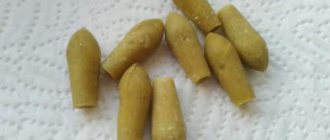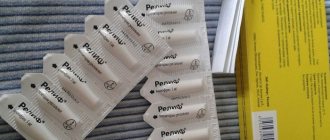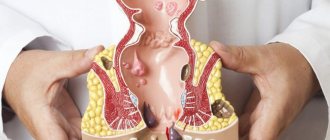Dear Reader! You are lucky that you found this article about baby suppositories for constipation. There is such confusion on this issue on the Internet that the topic of “constipation suppositories for newborns” unexpectedly caused difficulties for both the author and the portal’s editor-in-chief. After a very thorough study of the issue, it turned out that there is nothing to offer mothers reliably and professionally! So, we present to your attention an overview of the market for rectal suppositories for constipation for newborns and infants.
Types of suppositories that are used in pediatric practice
Children under one year of age, after consultation with their doctor, can use glycerin or sea buckthorn suppositories.
For the treatment of children 2-3 years of age and older, you can also use gas-forming suppositories (carbon dioxide has an irritating effect on the intestinal wall and stimulates the evacuation of feces).
Glycerin suppositories
Rectal suppositories based on glycerin (glycerol) help well with delayed bowel movements in babies. This group includes Glycerin, Glycelax.
They have the following properties:
- The active substance is not absorbed through the mucous membrane of the rectum, but acts locally.
- The irritating effect leads to increased intestinal motility and promotes the movement of feces.
- Softens the stool.
- Reduce gas formation.
- Quickly dissolve in the intestines. Residues are excreted along with feces.
Suppositories with glycerin are usually prescribed to infants from 3 months of age. When using suppositories to treat patients of any age, consultation with a doctor is required.
Glycerin suppositories can be used once a day, usually in the morning, about 20 minutes after feeding. The effect occurs 5-20 minutes after inserting the suppository into the anus.
Contraindications to the use of baby suppositories for constipation may be:
- individual intolerance to the components of the drug;
- inflammatory processes in the rectum;
- haemorrhoids;
- rectal fissure;
- intestinal neoplasms;
- renal failure;
- gastrointestinal bleeding.
The most common side effects of glycerin suppositories include the rapid adaptation of the intestines to external stimulation. In rare cases, patients experience an allergic reaction to the components of the drug, which may manifest as itching and/or burning at the site of action.
Sea buckthorn candles for children
Sea buckthorn suppositories are not a direct laxative, but they can soften dense stool and have an anti-inflammatory and healing effect. They are used in the treatment of constipation, especially against the background of inflammation in the lower intestines.
This type of rectal suppository is prescribed to patients 6 months of age and older. The effect of sea buckthorn rectal suppositories begins approximately 30 minutes after administration; usually 1 suppository per day is used to treat children. Contraindications to the use of the drug are individual intolerance and the presence of open wounds in the anal area.
How to recognize constipation in a baby
Children's doctors call constipation a long-term retention of stool or, with relatively regular stool, incomplete cleansing of the intestines. Babies up to 12 months should have bowel movements 3 to 6 times a day.
If the baby does not have stool for 1-2 days, then this is constipation, and measures need to be taken. After all, irregular bowel movements are caused not only by the baby’s restless behavior and possible pain in the tummy, they are also very dangerous. Stagnation of feces in the tummy can lead to intoxication of the small organism. After all, the rectum of every person is well supplied with blood, and everything that is in it tends to be absorbed into the blood and spread to all organs. And the small, still defenseless organism reacts to all processes quickly, and sometimes unpredictably.
Pediatricians name some signs that, in addition to the frequency of stool, indicate a painful condition of the baby when trying to empty the intestines:
- The newborn has rare (less than once a day) stools that are hard.
- When a baby's feces look like hard lumps (so-called sheep feces). At the same time, the child is very worried, cries, strains, groans and twists his legs.
- Sometimes there is bloody discharge in the baby's stool.
- The anus appears to have signs of irritation.
If similar signs are observed in the baby, urgent use of auxiliary means is required.
How to use rectal suppositories correctly
- Rectal suppositories should be stored in a cool place to maintain their shape and effectiveness. However, the suppository used should not be too cold; before use, it should be slightly warmed in your hands.
- Before placing the suppository, the adult performing the procedure should thoroughly wash their hands with warm water and soap.
- The skin in the patient's perianal area should be cleansed (eg with sterile oil).
- The suppository is inserted with a narrowed edge into the rectum to a depth of approximately 2.5 cm, after which it is recommended to lay the child on his stomach and close his buttocks with your hands so that the drug does not fall out.
- After defecation, the skin around the baby's anus should be thoroughly cleaned.
- If the expected effect is absent, you should not increase the dosage and/or frequency of use of the drug.
If side effects occur, you should stop using the suppositories and consult a doctor who can discontinue or replace the drug.
General information about delayed bowel movements in young children
In children of the first year of life, defecation, as a rule, occurs daily. If there is no stool for 24 hours, they talk about constipation.
The following factors can cause delayed bowel movements in such a baby:
- Changes in diet. The pathological process can develop in children who were breastfed, when complementary foods are introduced into the diet, or when completely switched to artificial feeding. However, it may take some time for the child’s body to adapt to the new food.
- Lack of mobility.
- Use of iron supplements. Because of them, the stool will become denser, and the child will experience constipation.
- Infectious diseases, intestinal diseases, congenital anomalies.
In older patients, the cause of constipation may be poor nutrition, physical overload, stressful situations, insufficient fluid intake, a sedentary lifestyle, and diseases of the gastrointestinal tract.
Candles for constipation in children
There are three types of suppositories that are used if a person is constipated. When it comes to a child, not everything can be used, but for the sake of completeness, let's take a quick look at each:
- Glycerin - contains glycerin, which gently softens stool and facilitates its easy excretion. Such candles are allowed even for the smallest;
- Based on natural ingredients: sea buckthorn. They can not only soften feces, but also have a wound-healing effect;
- Gas-forming - the effect is obtained due to the release of gas, which promotes the movement of feces. But under no circumstances should they be used by children.
Now let's talk in detail about candles.
Constipation suppositories are medications for insertion into the rectum through the anus. Read the article on how to administer rectally. Such medications should be in every home medicine cabinet. They help well in cases where the baby cannot go to the toilet on his own for 2-3 days. If you give your baby a suppository for constipation, bowel movements will occur within 10-60 minutes.
Suppositories, or candles, are shaped like elongated cones about 2 cm long, which contain natural vegetable oils, solid fats, glycerin and other components. They do not harm the health of the baby, but at the same time they successfully soften feces, cause slight irritation of the intestinal mucosa and stimulate its motility.
Agree, dear mothers, rectal suppositories are a real salvation if the baby suffers from constipation. They are easy to use, effective and absolutely painless. But let's not forget that fecal obstruction in a child can be caused by diseases of the internal organs, poor diet or daily routine.
To improve digestion, you will have to adjust the diet, stimulate the child’s physical activity, if necessary, visit a doctor and undergo gastrointestinal treatment.
Remember that suppositories are an emergency measure and should not be used regularly.
Doctors recommend using suppositories for constipation only in extreme cases and no longer than 3 days in a row. If you constantly stimulate your baby to defecate with laxatives, the intestines will get used to “help” from the outside and will completely stop moving feces on their own. So be careful not to harm your baby!
You need to be careful when choosing a drug. Let's consider which candles are suitable for children of different ages.
Cause of constipation
Any parent wonders what causes the child's rare stool. The most common factors:
- lack of water intake;
- teething;
- low physical activity;
- changing eating habits;
- stress, great psychological stress;
- a lack of potassium can be caused by infection, hot weather, or drinking exclusively boiled water;
- in infants – a small amount of breast milk during feeding, a sharp transition from breastfeeding to artificial nutrition.
Constipation can be a symptom of many diseases, such as rickets, hypothyroidism, hemorrhoids, ulcers, and dysbacteriosis. In rare cases, abnormal bowel movements in children under one year of age indicate Hirschsprung's disease, a disorder of the nerve endings of the intestine. When this disorder occurs, surgical intervention is required.
Obviously, the reasons are manifold. A doctor can correctly diagnose them by conducting a certain examination. Having identified the source of the disease, you need to begin treatment. Prescribing medications on your own is extremely dangerous! A pediatrician can choose the right treatment that will help avoid difficulties during bowel movements.
Types of candles
Children's medications for constipation are presented in the form of suppositories, suspensions, tablets, powders, and ointments. The most effective and safest method is candles. They will quickly help the child, relieving him of unpleasant sensations. They affect the body locally, unlike syrups and tablets.
The list of acceptable suppositories for children includes two types of suppositories.
Glycerin
An optimal laxative suitable for infants. It is important to note that they should be used for newborns in exceptional cases, if other means do not help. Suppositories with glycerin are the safest for babies.
According to the instructions, they can be used starting from the age of two, but many pediatricians allow use at an earlier age. The drug relieves congestion locally, acting in the intestines. After administration, it quickly dissolves, softens feces, and promotes their gentle elimination. The action time is 15-30 minutes. They have no side effects, except for individual cases of intolerance to the components.
Long-term use leads to intestinal irritation; glycerin suppositories should not be used frequently. Available without a doctor's prescription. Please ensure that the packaging indicates that it is suitable for use by newborns. For infants, in addition to glycerin, they should contain sodium carbonate and stearic acid.
Sea buckthorn
Sea buckthorn suppositories are a completely natural remedy that helps speed up bowel movements and has an antiseptic, regenerating and powerful antioxidant effect. The berry contains vitamins A, C, P, K, B, healthy types of fats, acetylsalicylic and nicotinic acid. Relieves inflammation, swelling, fights bacteria, improves blood circulation, strengthens the walls of blood vessels, tones the intestinal mucosa. They have no side effects in the absence of allergies to the elements included in the composition, and are often prescribed by pediatricians for rectal irritations.
The laxative effect is less pronounced. It is optimal to use for infrequent stool retention. Sea buckthorn will gently help empty the intestines and heal wounds and cracks, if any. This type of suppository is used to treat hemorrhoids, anal fissures or rectal tears.
Use from birth is not allowed. In newborns up to three months, it can cause allergies and hide dangerous diseases that are important to diagnose at an early age. Another feature of sea buckthorn candles is that they cause a bitter taste in the mouth. Be prepared for the fact that your child may be capricious while eating.
Side effects
Parents should be aware that candles can not only be beneficial for babies, but can also cause serious harm to them. Using suppositories too frequently reduces the sensitivity of intestinal receptors. As a result, its peristalsis becomes weak and is not able to push feces on its own.
In addition, some components included in the suppositories can cause an allergic reaction in a newborn. Why is this happening? It is worth remembering that the medicine is absorbed directly from the intestines much faster than when taken orally. If there is an allergen in it, the body will react very quickly.
How to use
To avoid harm, read the instructions carefully before use. Check the expiration date. Make sure that the child does not have an individual intolerance to the components of the medicine. Laxatives are used in the morning, after breakfast 15-20 minutes later. Using melted candles is unacceptable, so store them in the refrigerator. Remove suppositories from packaging only before use. Before starting the procedure, wash your hands thoroughly with soap and dry them. Before opening the blister, warm the drug in your hands.
To light a candle for a baby, place the baby on his back and tuck his legs toward his tummy. Insert the candle with the narrow edge forward, preferably deeper, so that it does not jump out. After inserting the suppository, the baby will begin to push reflexively. To prevent the suppository from falling out, lightly squeeze your buttocks for a couple of minutes. For children over one year old, it is more convenient to place candles on their left side, with their legs bent at the knees close to their tummy. If the child is an adult, after the procedure, ask him to lie on his stomach for 15-20 minutes. To enhance the effect, you can give your baby a tummy massage. To do this, gently stroke your stomach strictly clockwise.
When using sea buckthorn suppositories to treat rectal fissures, it is advisable to first disinfect the affected area using a manganese bath. The positive effect occurs already on the second day of treatment.
There is no need to apply any lubricant to the spark plugs. They already contain the necessary components that facilitate passage through the anal canal. If necessary, to simplify the procedure, lubricate the child's anus with Vaseline or baby cream. After entering the body, the drug will melt under the influence of body temperature. The residue will come out the first time you empty it.
You should not light a candle for a tense or upset child, especially for infants. Cheer and calm the baby if he cries. Calm children in a good mood are much more likely to undergo the procedure quickly and painlessly. Glycerin suppositories can be used once every three days maximum, sea buckthorn suppositories are recommended for use once a day, the maximum duration of use is 7 days.
Source: GastroTract.ru
How to properly place suppositories for constipation in newborns
If there is no bowel movement for more than two days, it is necessary to light a candle to alleviate the baby’s condition, but this should be done when other ways to help the baby have been exhausted. Massage improves peristalsis well - gentle circular stroking around the navel, carried out clockwise, increasing the area of influence on the entire tummy. Regular exercise will also help, an exercise like a “bicycle”, when you alternately bend and unbend your legs; for very small children, imitation of crawling will also be useful. There is another proven method for constipation for newborns: using a “semi-enema” or a gas tube. The latter can be purchased at the pharmacy; if it is not available, then use a removable tip from a small enema, lubricating it with Vaseline.
Why is constipation dangerous?
Problems with bowel movements are a common problem among adults. In recent years, infants are increasingly encountering it. Cases of doctors prescribing suppositories are not uncommon. Constipation causes discomfort in the baby’s stomach and is dangerous due to other manifestations:
- Formation of cracks in the intestine - feces accumulate and become compacted, passing through the delicate mucosa, they scratch the membranes;
- Decreased immunity of the child, as a result of poor intestinal function, the body becomes vulnerable to diseases;
- Harmful substances that should be released with feces are absorbed into the blood, intoxication of the body occurs, and the general condition worsens;
- The intestines absorb nutrients and microelements worse.
In extremely rare and severe cases, the baby may experience rectal prolapse as a result of constant constipation.
What is constipation
Constipation is not only poor health and pain, but also a string of problems that it causes:
- intoxication of the whole body from stagnation of feces;
- cracks appear on the intestinal walls that can bleed;
- toxins weaken the immune system, which is already low in infants;
- Stagnation of feces interferes with the absorption of food and nutritional components.
The list is incomplete, it can be continued indefinitely, in addition, constipation in critical cases can provoke partial prolapse of intestinal loops.
When you need help
The use of suppositories for newborns for constipation depends on the type of feeding.
If the baby is on artificial nutrition, then the absence of stool for two days is already a problem that needs to be dealt with. The situation is different if the child is completely breastfed. Pediatricians believe that the absence of stool for up to 5 to 7 days can be considered normal. The fact is that breast milk is an ideal food for a baby; it is almost completely digestible. But this is possible if the baby has a good appetite, is not capricious and is active.
If the baby is breastfed, but whines, refuses to eat, squirms, tries to push and behaves restlessly, then even a two-day break in bowel movements is a reason to consult a doctor.
Preventing constipation
If you follow all the pediatrician's advice, you can avoid problems with stool in the future.
So, at home you can do the following:
- Breastfeeding women are advised to adhere to a dietary diet, excluding constipating and allergic foods from the menu.
- From the first days of life, children should be given something to drink to avoid solidification of waste in the intestines.
- An active lifestyle has a positive effect on digestive processes. You can take kids to the pool, do gymnastics and give them a belly massage.
- It is important to choose the right milk formulas that are aimed at improving stomach function.
- When introducing complementary foods, include foods with a high content of coarse fibers in the menu.
lechenie-zapora.ru
What candles will help a newborn baby?
Pediatricians distinguish three types of suppositories for babies. But it is strictly forbidden to use candles without a doctor’s recommendation. This can cause serious health problems.
- Glycerin suppositories are rectal suppositories based on glycerin and glycerol. Considered the safest. They can be used from three months of age. The instructions for the drug say that the principle of action is based on the fact that the suppositories dissolve and soften the feces due to the resulting liquid. They also irritate the nerve endings of the intestines, which promotes bowel movements. Glycerin is not absorbed into the mucous membrane and is released along with feces, acting locally. When used correctly, they practically do not cause side effects.
- Gas-forming suppositories for children - the action of this group of suppositories is based on the chemical properties of the active component. Sodium bicarbonate dissolves in the intestines and carbon dioxide bubbles form. They provoke contraction of the mucous membrane, as a result of which the child empties. Gas-forming suppositories are prohibited for newborns. A number of pediatricians advise them for children from the age of ten.
- Sea buckthorn suppositories are a preparation based on sea buckthorn oil. It is considered medicinal, relieves inflammation, and copes with pathogenic microorganisms. Additionally, suppositories cope with the problem of constipation, but the laxative function is less pronounced than that of other drugs.
Among the main inexpensive candles are:
- Glycerin, Glycerol, Glycelax - from the glycerol group;
- Ferrolax, Calciolax - names from gas-forming drugs.
Glycerin suppositories
The most effective and safest, according to pediatric doctors, are glycerin suppositories. They do not contain harmful ingredients and give a very quick, full-fledged result within 30-40 minutes.
For example, candles from domestic manufacturers Glitselax are soft and quick to achieve the desired result, easy to use, and can be used for a week without harm or health consequences.
Due to their composition, glycerin suppositories have the ability to soften the stagnant mass of feces in the intestines of children and accelerate their excretion. The main active ingredient of these suppositories is glycerin. It gently irritates the receptors in the rectum, which stimulates contraction and further emptying of the child’s intestines. Correct and rare use of such suppositories does not entail side effects. Frequent use of glycerin suppositories can cause rectal irritation. Pediatricians recommend using such suppositories 20 minutes after the morning meal.
According to the instructions for the drug, these suppositories can be given to a baby no more than once a day. Long-term use of glycerin suppositories leads to the fact that the intestines of infants get used to the drug and refuse to work without the suppository.
Contraindications for Glicelax type suppositories: severe irritation or fissures of the anus, tumor in the rectum, hemorrhoids.
How to light a candle correctly
Inserting a suppository seems like an easy procedure, but in fact, mothers should know a number of important rules. Following them will help you quickly and painlessly insert a rectal suppository.
- The baby is placed on his side, his legs are tucked in his chest. It turns out that the child is lying in the fetal position.
- The buttocks are spread apart with the fingers of one hand, and the suppository is quickly inserted with the other hand.
- The candle should be inserted with the tapered end. If there are bumps, scars or other protrusions on it, they should be softened and straightened with your fingers.
- After inserting the suppository, the buttocks are kept closed for several minutes. The fact is that the baby feels a foreign body and begins to push. The suppository will easily fall out of the rectum without even starting to act.
- Suppositories are stored in the refrigerator because they melt at room temperature. Before inserting the candle, you should hold it in your hands for a short time to warm it up.
The medicine quickly dissolves in the intestines and begins to act. Typically, defecation occurs within 20 to 30 minutes after using a rectal suppository.
Rules of application
You should not often use suppositories for newborns, as they are addictive and the intestines will stop contracting on their own.
The procedure for introducing a suppository is best done in the first half of the day, 25 minutes after feeding. If you insert a suppository at the same time for several days in a row, the intestines can begin to work on their own.
It is better to lay the baby on his left side and bend his knees. The candle is inserted with the tapered end. You can pre-coat the anus with Vaseline or baby cream. If the candle was stored in the refrigerator, then first you need to hold it a little in your hand. Children, feeling a foreign body inside, begin to push. Therefore, after the suppository is inserted, you need to slightly squeeze the buttocks.
It is recommended to administer one suppository to children under three months of age for no longer than three days in a row. For children over three months old, the duration of treatment can be extended to a week, but only in extreme cases.
Contraindications to the use of rectal suppositories are rectal fissures, tumors, and allergic reactions to the constituent components of the drugs. Do not use for appendicitis and rectal bleeding.
There are two main groups of suppositories for constipation in newborns: glycerin and gas-forming. The action of the first type of suppositories is aimed at softening stool, as a result of which they are freely excreted. Gas-forming suppositories serve as auxiliary therapy and only increase the urge to empty the bowel.
For children, glycerin suppositories are considered the best option. They do not cause pain or discomfort, have a softening effect and give results faster.
grudnichky.ru
Features of application
- Glycerin suppositories for adults come in a dosage of 1.5 mg, for children - 0.75 mg. Depending on your age, your doctor will prescribe the right dosage. Typically, a baby with constipation up to one year old is given one-fourth of a baby suppository once a day.
- Suppositories are inserted in the morning, twenty minutes after breakfast, this time is the most optimal for bowel movements.
- The procedure for inserting a suppository should not be repeated more than three times in a row.
- After the first use of the suppository, you need to monitor the child. If he experiences redness of the skin or a rash, then it is urgent to do an enema of clean water. The baby is allergic to one of the components of the candle.
Types of drugs
There are no special suppositories for constipation for infants, but there are approved medications that can be used if a problem occurs. List of the safest and most effective candles.
Glycerin suppositories are considered the most popular and safest. The instructions suggest their use from the first days of life. Glycerin suppositories soften stool and promote their natural removal. The action occurs within 30 minutes. One suppository contains 1.24 glycerol. If a Glycerin suppository is used for newborns, it is recommended to divide the suppository into three more parts. Do not use it for more than three days in a row.
Glycerin suppositories are most often prescribed for newborns. The active ingredient of the drug is not absorbed into the intestinal walls, so there is no systemic effect on the body. But, like any other laxatives, Glycerin suppositories do not cure, but only relieve symptoms.
Another drug is Glycelax, which has a laxative effect. It contains 0.75 g of the active ingredient glycerol. The components irritate the intestinal walls, stimulate peristalsis and soften stool. As a result, natural bowel movement occurs. The act of defecation usually occurs within the first 15 minutes after the administration of the suppository, but can occur after 1.5 hours.
Glycelax children's suppositories do not have a negative effect on other organs, since the components do not penetrate the systemic bloodstream. Continuous treatment is allowed for no longer than 5–7 days. For children under one month old, you can divide the candle into two or three parts. If the divided dosage does not lead to the desired result, after two hours you can re-administer the drug in a larger dosage.
Sea buckthorn suppositories consist of natural ingredients and can be used for a long time. Along with the laxative effect, they have an anti-inflammatory and wound-healing effect. In addition, sea buckthorn suppositories for constipation fight pathogenic microorganisms and improve microflora.
After administration of the Sea Buckthorn suppository, irritation of the intestinal walls and softening of the feces occurs. For newborns, it is recommended to divide one candle into 4 parts. The only contraindication to the use of sea buckthorn suppositories is an allergy to the components and the presence of open wounds in the anus.
Ferrolax suppositories, after being introduced into the intestines, begin to interact with fatty components, forming gas. Stool is pushed out. The oils that make up the suppositories have a softening effect, so the act of defecation takes place without pain and discomfort. You should not insert more than one suppository into the baby’s rectum per day.
Viburkol suppositories will help treat colic in newborns. This is a homeopathic remedy that contains chamomile, plantain, lumbago and other natural ingredients. Viburkol has a long list of positive effects on the body: relieves inflammation, soothes irritated intestinal walls, relieves pain, promotes the elimination of toxins and reduces spasms.
The effect of the drug Viburkol begins after 15 minutes. Prescribed to children in case of flatulence and intestinal spasms. Children up to 6 months can be given two suppositories per day. Starting from six months, you can use up to 4 candles per day.
Homeopathic suppositories Natalsid have a laxative effect, additionally eliminate inflammatory processes and heal the irritated intestinal mucosa. Children under one year old can be administered one suppository once a day.
Constipation in infants causes anxiety and worry among parents. Systemic treatment of the disease is prescribed by the doctor, having determined the cause. Constipation suppositories for newborns are used to eliminate symptoms; they help the baby get rid of feces, but have a one-time effect. Suppositories do not treat the underlying disease. Once in the intestines, they stimulate mucosal receptors and increase fecal mass. All this contributes to defecation. Rectal suppositories should not be used uncontrollably, since the baby will forget how to empty his bowels on his own.
Contraindications
Despite their effectiveness, rectal suppositories for newborns have limitations in their use:
- Age up to 3 months - the baby is born with a clean intestine, not populated by microorganisms. Gradually, the child gets used to and adapts to the world around him, and the functioning of his internal organs improves. Suppositories are still dangerous for babies, since it is impossible to determine the true cause of constipation at such an early age. The child may have an anatomically incorrect intestinal structure, and suppositories will only worsen the situation. In addition, they can cause an allergic reaction. For newborns, Microlax is prescribed - microenemas. They are allowed to be used from the very first days;
- Rectal fissures;
- Exacerbation of hemorrhoids;
- Intestinal tumors;
- Bleeding from the rectum;
- Individual intolerance to one of the components of the suppository.
Suppositories are always contraindicated in cases of chronic constipation - caused by physical factors. For example, feces are retained by a hernia or scar growth, etc.
In cases where it is not possible to use suppositories for constipation in newborns, doctors prescribe oral medications in the form of solutions or syrups, for example Duphalac.
You can find out about the dosages of the drug "Duphalac" in the article "Duphalac: instructions for use for children by age."
What is used for older children?
Viferon is a remedy that is suitable for older children. It will allow you to quickly overcome the problem and relieve your baby of pain.
If your child has contraindications, you can give him Panadol. This product does not cause allergic reactions and quickly normalizes the overall condition.
The most effective are the following 3 varieties:
- Viferon (150 rubles).
- Viburkol (120 rubles).
- Tsefekon (110 rubles).
Prices are approximate and are for one package of candles.
Please note that some products may cause colic and diarrhea . If you use them for a long time, your child may develop diarrhea and muscle weakness.
Sea buckthorn suppositories for constipation
Sea buckthorn suppositories are a completely natural remedy that has a wound healing effect. They will provide an anti-inflammatory effect. Sea buckthorn oil is the best remedy for treating constipation.
If you decide to use candles of this type, you can be confident in the results.
How to normalize stool
- If the baby is completely breastfed, then it is necessary to adjust the mother’s diet. They should eat laxative foods: prunes, dried apricots, carrots, beets. But first you need to eat very little to check if there is an allergy to the new product.
- Introducing water - if there is a lack of fluid in newborns, constipation is possible.
- For babies on artificial feeding, it is worth changing the mixture, choosing one with the addition of lactobacilli.
- Children older than six months who are additionally fed need to be introduced to vegetables and fruits. Introduction of complementary foods according to age: zucchini, pumpkin, apples, prunes. Fermented milk products will also help normalize microflora.
- A tummy massage will help improve peristalsis - you need to carefully make circular movements clockwise.
Constipation suppositories for newborns are prohibited under the age of 3 months. They are used only after the recommendation of a doctor. They help cope with the proctogenic type of disease - caused by systematic intestinal disorders, when feces have already collected, and the brain does not receive a signal about the need to contract the mucous membrane. Regular use leads to addiction. Suppositories remove stool, but do not treat the cause of constipation.
We also recommend reading the article:
- Anti-constipation medications for children: review of the most effective ones
- Folk remedies for constipation for children - the best recipes
Be healthy!
Source: lechenie-baby.ru
How to deal with constipation in infants in other ways
In addition to modern drugs, this problem can be dealt with by other methods. Our ancestors also used them and proved their effectiveness. Let's consider the main ones:
- Leg flexion. Using gentle movements, it is necessary to bend the baby’s legs towards the tummy.
- Abdominal massage.
Place your hand on your stomach and massage with light circular movements in a clockwise direction. This will improve the process of bowel movements and the release of gases. tummy massage gas tube - Gas outlet tube. If your baby's tummy is hard, it means that a lot of gas has accumulated in it. You can remove them using the tip of a small enema or a special tube. Before using the tube, you need to lubricate it with Vaseline and only then carefully insert it into the baby’s anus no deeper than 3 cm. The baby’s position is lying on his side with his knees bent.
- Enema. This method should be used last. But if the above mentioned methods did not help, then you should use an enema. The position of the child should be as in the previous method.
Our grandmothers also used many methods that are not recommended today. For example, they took an ordinary thermometer, moistened it in warm water and inserted it into the anus. This method is extremely dangerous, since the thermometer can simply break and end up in the child’s body. Also another popular method among the old generation is a piece of soap or a cotton swab. Such methods can damage the mucous and delicate skin of the baby, which will lead to serious consequences.
If constipation does not go away after a couple of days, you should immediately contact your pediatrician to prescribe treatment.










